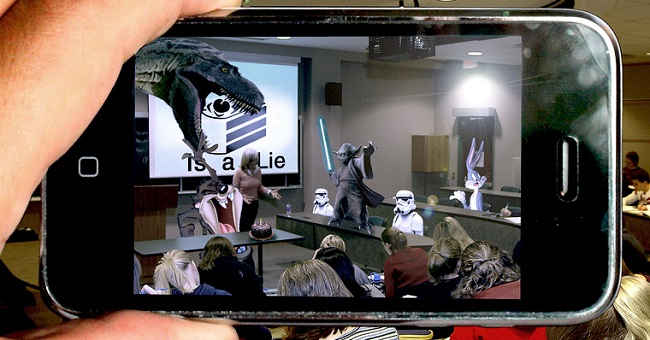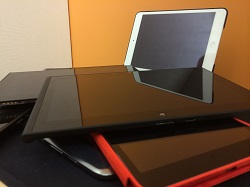Conversor, leaders in assistive technology, have released a series of updates for their SEN-friendly Notetalker solutions which will help teachers as well as pupils. Notetalker App, combined with a Universal microphone and cable kit for any smartphone or tablet, uses a simple user interface which allows the recording of classes. These developments have been made with CPD and working on identified weaknesses, such as after an Ofsted inspection. The range of Notetalker products is priced from £4.99 to £119.98.
When I began teaching in the early 1990s, schools were approaching the Millennium with great anticipation for a futuristic world of gadgets and technologies. The best we had at that time was a BBC B Computer, hooked up to a dot matrix printer with that awful neverending sheet of paper with the holes in the sides. In some classrooms they were seen as glorified typewriters so that kids could type up a good piece of writing. More adventurous uses included simple programming and filling the screen with scrolling text from a few lines of code.
It’s arguable that the area of education that embraces technology the most is SEN. Here, journalist and health specialist Felicity Dryer looks at how Virtual Reality is being used to help pupils with special needs.

The use of Virtual Reality (VR) technology in the special education arena has become an increasingly popular idea over the years, spawning a series of scientific studies to help validate their effectiveness. VR has been used worldwide in a wide range of careers, including the areas of medicine, the military, sports, and engineering for training, collaboration, product design and information delivery purposes.
After Bett last month, many in the education industry are considering the current state of technology in the classroom. There’s a wide range of gadgets that teachers can consider, and Matt Britland gives his thoughts on the options available.

Last year I wrote an article for the Guardian on the future of technology in education. This article focused on ‘The Cloud’ and its impact on education, whilst only briefly mentioning devices. As it’s now 2014, I thought it would be useful to revisit this subject and take a look at some things to look out for and how they can be used to support teaching and learning over the coming years.
Schools are taking tablets very seriously at the moment, and many are investing in new devices. Apple has a bit of a stranglehold in education with its iPad, but with an influx of cheaper tablets more and more schools may opt for Android devices like the Tesco Hudl. Microsoft are trying to get involved with its new Surface 2, so 2014 or 2015 may see Apple losing its grip. The iPad is my preferred device, but it is expensive and schools need to decide how tablets will be used to support teaching and learning before they splash out. From a personal point of view, Apple need to make some improvements in order to keep ahead. Not all schools want to go 1:1, and there needs to be far better ways to manage devices used across the school. Multiple profiles on devices would be fantastic, as would true multitasking with apps working side-by-side; some operating systems are already offering this. Apple and other providers need to start talking to schools if they want us to invest money in their devices. Tablets are not always suitable for certain needs, Google Chromebooks are making headway in schools as many are looking at adopting Google Apps, which is free for education use.
As an important part of 2017’s Capital of Culture, Feren’s Art Gallery have been helping pupils discover art with the help of the hard workers at Hull Children’s University. Innovate My School regular David Andrews explains how the use of iPads have been an essential part of this project

Recently we've had the privilege to be invited to work alongside Hull Children's University and St James Primary School, sharing our methods on how the application of mobile technology can have a real impact on [education] standards. Over the next year we will be working with all the schools which are supported by the charity to share a simple, effective, accessible approach to raising standards across the curriculum.
Working alongside Hull Children's University, we helped to design a Digital Arts project based on the module 'I'm Proud of My City' - Hull's successful bid to become the City of Culture for 2017 and using the free Feren's Art Gallery for inspiration for the children's ideas.
Hull Children's University was started by Dr John Buttrick to give 'young people the opportunity for invaluable learning experiences aimed at raising their future aspirations and ambitions.' We first became inspired by John and his ethos at an event at Hull University, 'We Will Be Champions', in May 2012, which was set up inspire the primary children in Hull to perform to their maximum potential and to be the best that they can be. The event attracted around 500 children and some fabulous speakers, which included Kevin Keegan, Graham Taylor, John Godber, Mike Tomlinson, Alan Johnson and Sam Whittaker.

A community-driven platform for showcasing the latest innovations and voices in schools
Pioneer House
North Road
Ellesmere Port
CH65 1AD
United Kingdom